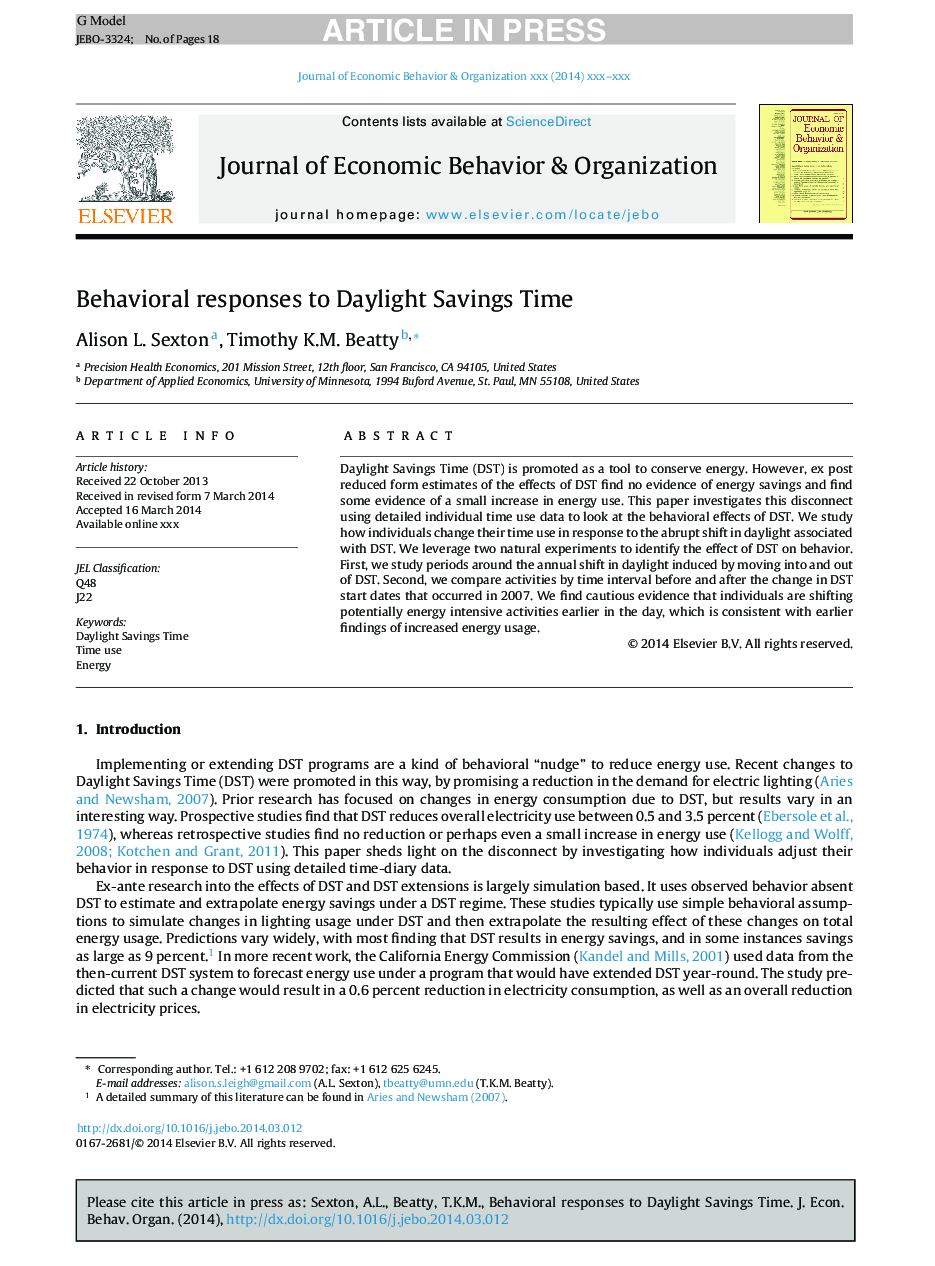| Article ID | Journal | Published Year | Pages | File Type |
|---|---|---|---|---|
| 10437678 | Journal of Economic Behavior & Organization | 2014 | 18 Pages |
Abstract
Daylight Savings Time (DST) is promoted as a tool to conserve energy. However, ex post reduced form estimates of the effects of DST find no evidence of energy savings and find some evidence of a small increase in energy use. This paper investigates this disconnect using detailed individual time use data to look at the behavioral effects of DST. We study how individuals change their time use in response to the abrupt shift in daylight associated with DST. We leverage two natural experiments to identify the effect of DST on behavior. First, we study periods around the annual shift in daylight induced by moving into and out of DST. Second, we compare activities by time interval before and after the change in DST start dates that occurred in 2007. We find cautious evidence that individuals are shifting potentially energy intensive activities earlier in the day, which is consistent with earlier findings of increased energy usage.
Related Topics
Social Sciences and Humanities
Economics, Econometrics and Finance
Economics and Econometrics
Authors
Alison L. Sexton, Timothy K.M. Beatty,
